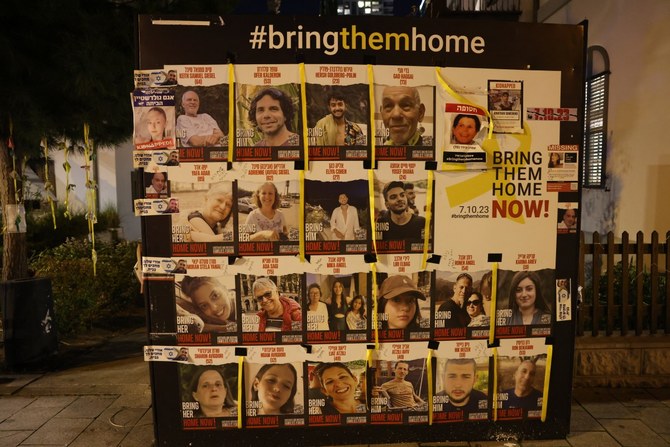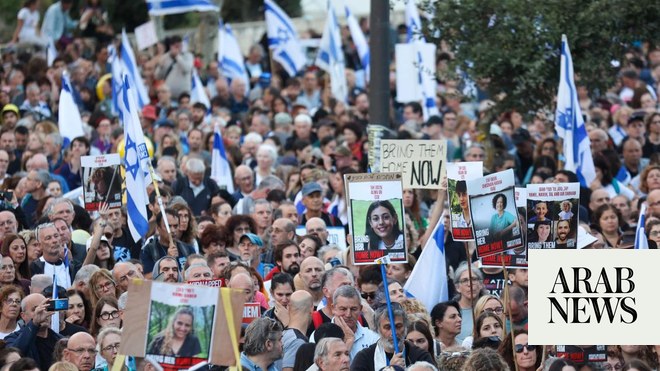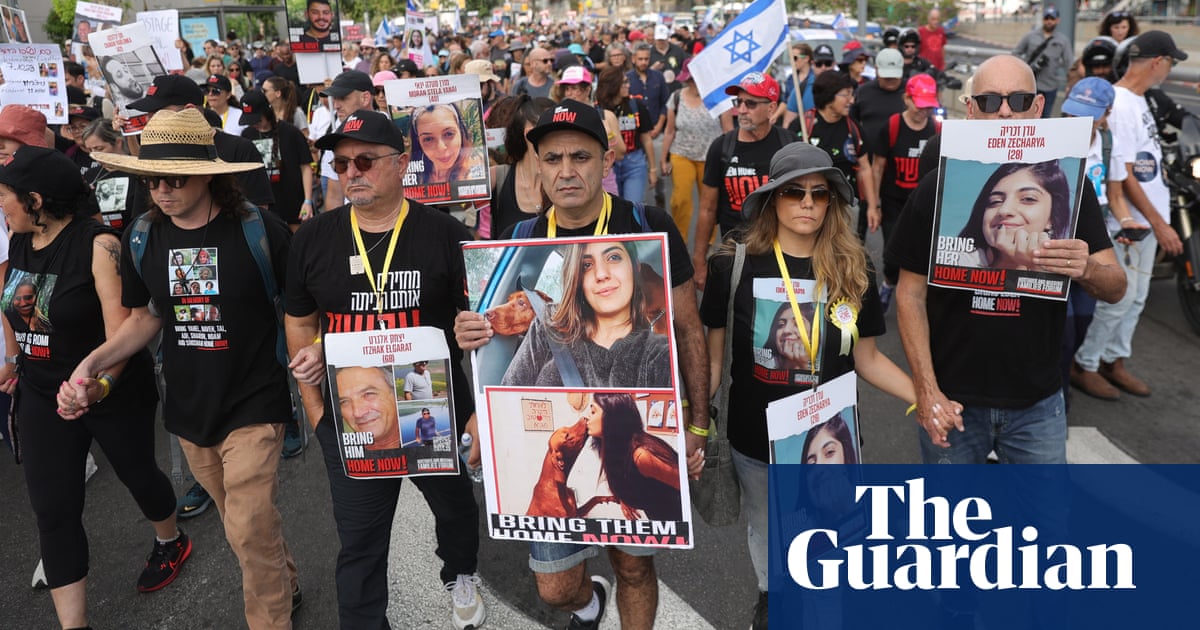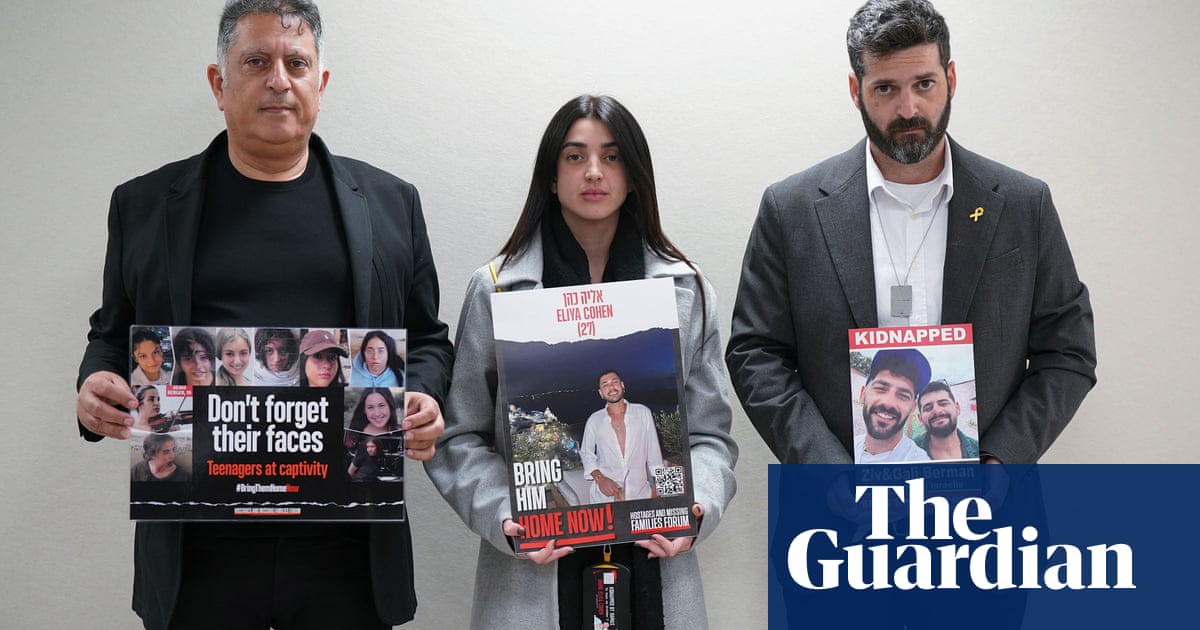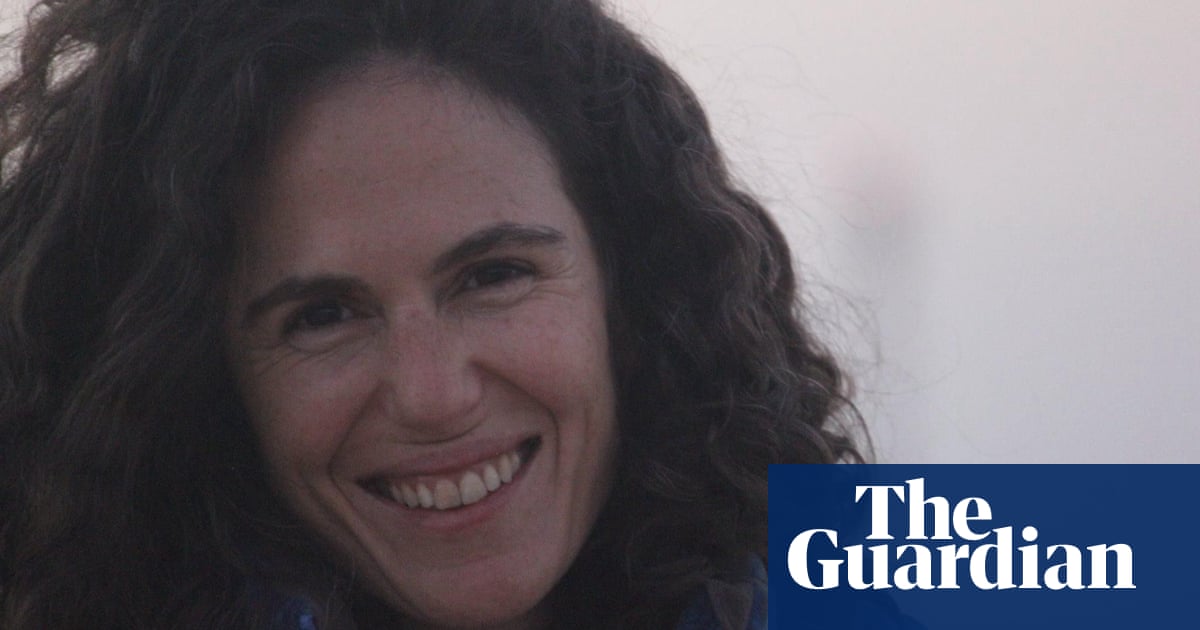
The families of hostages being held in Gaza have said they are terrified about the safety of their loved ones after the end of a seven-day ceasefire.
Fighting resumed on Friday after the expiry of the truce, during which Hamas released 80 Israeli hostages in exchange for 240 Palestinian prisoners.
The relatives of some of the remaining 136 Israeli hostages have said they are grappling with feeling joy for those who have been released, while being worried sick for loved ones left behind. The remaining hostages include 17 women and children, according to the Israeli army, which confirmed the death of five hostages in Gaza.
Shahar Mor Zahiro, whose uncle Avraham Munder, 78, was abducted from the Nir Oz kibbutz on 7 October, said: “I’m sad and worried. The return of the fighting, violence and escalation makes me feel scared. Every time a bomb falls near my uncle, we know he can hear it and we are afraid for his life.”
Zahiro’s family are among many who were separated during the Hamas attack. Avraham’s wife, Ruti Munder, 78, their daughter, Keren, and grandson, Ohad Munder-Zichri, nine, were abducted separately and freed on the first day of the ceasefire.
The family has been speaking to other recently freed hostages in an effort to find out the fate of Avraham, who is frail and plagued by health problems.
Zahiro, 52, said it was a “comfort” to discover that Avraham was being held with other people from Nir Oz, including Nili Margalit, a 41-year-old nurse who tended to the captives before her release on Thursday.
“She took care of them, but now they’re left alone, so the situation has got worse in many aspects,” Zahiro said. “Time is not on their side. The hostages don’t have their usual medications and they live in inhumane conditions.”
Gil Dickmann, 31, has also had to rely on information from freed hostages to find out about his cousin, Carmel Gat, 39, who was abducted from the Be’eri kibbutz. “Two hostages who have been released told us that Carmel was with them. There were some aggressiveness from the guards in the first few days, but as a whole, she’s OK, she’s healthy, and she is supposed to be alive,” the psychology student said.
“That’s why we’re so worried right now, because Hamas is using psychological terror and telling Israel that there are no more women, they can’t find any more women alive, and we know that’s a lie … We are very worried that now the firing is back, it puts the lives of the hostages at risk.”
Gat’s sister-in-law, Yarden Roman-Gat, 36, was taken from the same house but held separately. On Wednesday, Roman-Gat was photographed being reunited with her husband, Alon, and their three-year-old daughter, Geffen.
Dickmann said he was worried that Gat was being held on her own, but that Roman-Gat’s release had given the family hope of being reunited. He said the family was not surprised to find out that Gat, an occupational therapist who was due to start a master’s programme, had been teaching other hostages coping mechanisms in captivity.
“It was a way of remaining human during this inhumane experience,” Dickmann said. “We understand that she applied some of her capabilities as a therapist with the hostages who were there … and gave them yoga lessons.”
Lee Siegel, 71, said he was “more worried” with the resumption of fighting on Friday morning for the safety of his brother Keith Siegel, 64, a US citizen who was abducted from the Kfar Aza kibbutz along with his wife, Aviva Adrienne Siegel, 62.
The couple, who have four children and five grandchildren, were held together at times before Aviva was released on Sunday. Aviva is now desperate for her husband to be freed, telling their family: “I went through hell.”
Siegel said: “She has faith that Keith will stay strong, [but] she is very worried because we can only hear her and imagine what goes on, but she knows what goes on. Maybe not minute by minute, day by day for Keith, but she knows what she went through and nobody wishes that on anyone.
“They’re prisoners in a very dark place, metaphorically and literally … not being in control of where you are, what you can do. Not knowing when your next meal – it’s difficult to call what they were being fed meals – but when their next food is coming, when water is coming.”
Udi Goren, whose cousin Tal Haimi, 42, was abducted from the Nir Yitzhak kibbutz while trying to protect his wife and three children, said the renewed offensive was a “huge disappointment”.
Israeli warplanes’ attacks on targets in Gaza after the end of the ceasefire had killed 109 people, according to health officials in the territory.
“We know for certain that the ground incursion and the airstrikes are a threat to the lives of the hostages and this is all very concerning,” Goren said.
The family have had no news about Haimi, a civil engineer, since 7 October. “The uncertainty is definitely one of the hardest things,” Goren said. “We don’t know if the government is doing everything in its power to bring him back, and is it going to be soon? Should we expect him alive or dead? Is he badly wounded? Is he suffering?”
Goren urged the Israeli government to do everything in its power to continue freeing hostages. “I want the government to bring them all back as soon as possible, alive, no matter what the cost,” he said.





